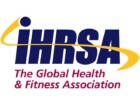IHRSA’s Letter to Joe Biden
October 27, 2020
Dear Vice President Biden,
On behalf of the more than 40,000 health and fitness clubs we represent across the country, we applaud your concern and desire to safeguard the health of Americans from COVID-19.
We, too, are in the business of keeping our fellow Americans healthy. It is, quite literally, our life’s work. While we fully appreciate the seriousness of COVID-19, we firmly believe that health and fitness clubs are part of the solution, not the problem, and therefore, must remain open.
While much still remains unknown about COVID-19, the assumption that health and fitness clubs are either a source of new infections or a high-risk environment for new infections does not stand-up to the data.
There is substantial data that America’s gyms and health clubs, when following safety protocols can operate safely.
- A case control study published in the CDC’s Morbidity and Mortality Weekly Report found that people who tested positive for COVID-19 were more likely to have dined in a restaurant or have had a close contact diagnosed with COVID-19. There was no statistically significant association between COVID-19 test results and visiting a gym.
- A survey conducted by MXM of 2,877 health and fitness clubs, reports a mere 1,155 COVID-19 cases out of 49.4 million check-ins from June through August, an occurrence rate of .0002%.
- Data collected as part of an ongoing study at the University of Florida found no detectable SARS-CoV-2 (the virus causing COVID-19) in the air during multiple testing periods at a health club in Florida in which patrons were following state guidelines and appropriate social distancing measures.
Contact tracing per state bears this out as well.
- Louisiana releases tracking data on COVID-19 cases by setting. Of twenty reported settings, ranging from automotive to religious gatherings, gym/fitness centers rank 15th out of 19 in COVID-19 cases. Well behind settings such as bars (#2), casinos (#4) and restaurants (#5) and even behind office settings and religious gatherings.
- Colorado has released contact tracing data linking outbreaks to settings. Of 18,693 total cases linked to outbreaks traced, 637 cases were linked to bars and restaurants, 574 cases were linked to offices, but zero cases resulting from outbreaks linked to health clubs or fitness centers in Colorado.
As outlined above, the data showing club check-ins vs. reported cases and data from Louisiana and Colorado contact tracing, suggest health and fitness clubs have not been higher risk locations than other businesses for transmission of COVID-19. Rather than closing clubs, we request that you look to health and fitness clubs as partners during this pandemic. The country’s health and fitness clubs and their millions of employees are focused on their critical role of promoting and maintaining the mental, physical, and social health of the nation. Evidence shows that physically active lifestyles can improve immune system health and diminish the risk of contracting some communicable diseases, including upper respiratory tract infections. A study conducted in the United Kingdom on the link between lifestyle factors and COVID-19 showed that obesity and decreased physical activity were linked to a higher risk of contracting severe cases of COVID-19. In a newly released pre-print, researchers used genetic markers to assess obesity, alcohol use, lifetime smoking, and physical activity. They found a two-fold increase in risk of respiratory COVID-19 and COVID-19 hospitalization for people with obesity and lifetime smoking, and a five-fold decrease in risk of respiratory COVID-19 for people who were physically active. Health and fitness clubs, through the promotion of mental and physical health, are an integral part of the solution to returning citizens to a state of good health.
Additionally, health and fitness clubs are uniquely positioned to help their states, by conducting accurate and efficient contact tracing. The club business model revolves around access control. Clubs use a check-in system, which allows them to identify who is in the club, as well as the date and time they visited. Unlike most other businesses, health and fitness clubs know precisely who is in their facility, and how to contact them. This contact tracing ability should make clubs an ally in states’ efforts to keep their citizens healthy and safe during these challenging times.
Protecting the public and our employees and preventing the spread of COVID-19 is a goal we share with you. If we put aside assumptions and follow the data, we see a consistent story, showing that health and fitness clubs operating under appropriate guidelines, such as those now in place, are not high risk environments for the spread of COVID-19. As sites of preventative health interventions, health and fitness clubs are allies in the effort to restore the health of Americans and must remain open.
Sincerely,
Brent Darden
IHRSA Interim President & CEO

